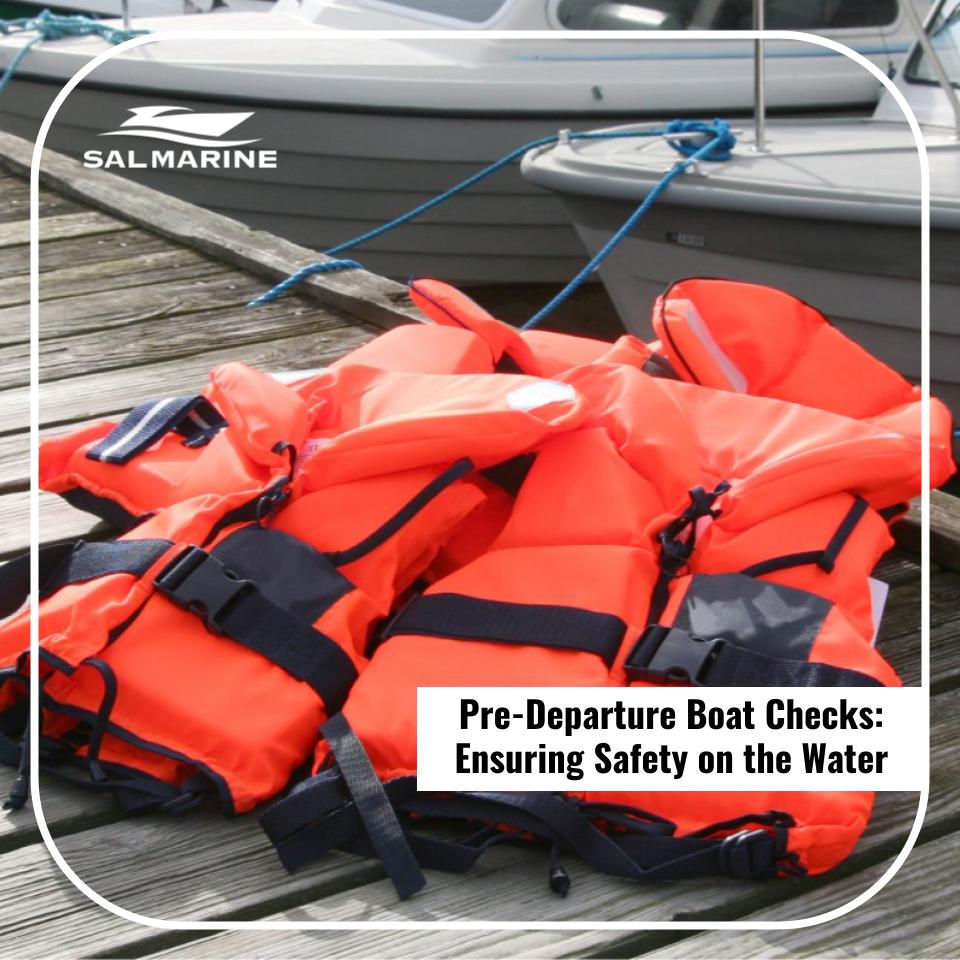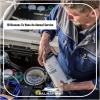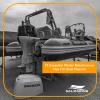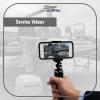Pre-Departure Boat Checks: Ensuring Safety on the Water

Before embarking on a boating adventure, it's essential to conduct thorough pre-departure checks to ensure a safe and enjoyable experience on the water. Just like inspecting a car before a long journey, inspecting your boat can prevent potential mishaps, equipment failures, and even emergencies while out at sea. In this blog post, we will highlight some crucial pre-departure boat checks that every boater should perform to maintain their safety and peace of mind.
- Safety Equipment
The first and most critical aspect of pre-departure checks is ensuring that all necessary safety equipment is present, functional, and easily accessible. This includes life jackets or personal flotation devices (PFDs) for every passenger on board, as well as additional PFDs suitable for children. Verify that all life jackets are in good condition, properly sized, and securely fastened.
Furthermore, check the condition and functionality of other safety equipment, such as fire extinguishers, distress signals (flares, whistles, and horns), navigation lights, and throwable flotation devices. Replace or recharge any expired or faulty equipment and ensure they are readily accessible in case of an emergency.
- Engine and Fuel System
A well-maintained engine and fuel system are vital for a smooth and trouble-free boating experience. Before departure, inspect the engine compartment for any signs of leakage, loose connections, or damaged hoses. Check the oil and coolant levels, and ensure that the drive belts are in good condition and properly tensioned. Also, inspect the propeller for any visible damage or debris.
Next, inspect the fuel system, including the fuel tank, lines, and connections. Look for any signs of leaks, corrosion, or loose fittings. It's essential to ensure the fuel tank is adequately filled and that you have enough fuel for your intended trip. Remember to run the blower to remove any fumes before starting the engine.
- Electrical Systems
A properly functioning electrical system is crucial for various functions on a boat, including navigation, communication, and lighting. Before departure, check all electrical connections, including battery terminals, for corrosion and ensure they are secure. Test the navigation lights, horn, and all other electrical accessories to ensure they are working correctly.
Additionally, inspect the condition of the battery and check the fluid levels if applicable. If you have onboard electronics like a GPS, depth sounder, or marine radio, make sure they are powered up and functioning correctly.
- Bilge Pump and Plumbing
The bilge pump plays a vital role in keeping your boat afloat by removing any accumulated water. Check the bilge pump and make sure it is in good working order. Clean out any debris or obstructions that may hinder its operation.
Inspect the boat's plumbing, including hoses, clamps, and fittings, for any signs of leakage or wear. A small leak can quickly become a significant issue while on the water, so it's crucial to address any plumbing concerns before departure.
- Navigation and Communication Equipment
If your boating plans involve venturing beyond familiar waters, reliable navigation and communication equipment are essential. Check your charts or electronic navigation devices to ensure they are up to date and cover your intended route. Test your GPS unit or compass to verify accuracy and functionality.
Additionally, ensure that your marine radio is in good working condition, and test it to confirm you can both transmit and receive communications. It's also a good idea to have a backup means of communication, such as a handheld VHF radio or a mobile phone with a waterproof case.
Pre-departure boat checks are a crucial aspect of boating safety that should never be overlooked. Taking the time to inspect and maintain your boat and its equipment can significantly reduce the risk of accidents and ensure a smooth and enjoyable boating experience. By conducting thorough pre-departure boat checks, boaters can prioritize safety, prevent potential problems, and enjoy their time on the water with peace of mind.
Pre-Departure Boat Checks Checklist:
-
Safety Equipment:
- Life jackets/PFDs: Ensure an adequate number of properly fitting and accessible life jackets or PFDs for all passengers.
- Additional PFDs for children.
- Throwable flotation device.
- Fire extinguishers: Check for expiration dates and ensure they are in working order.
- Distress signals: Flares, whistles, and horns should be present and within their expiration dates.
- Navigation lights: Ensure all lights are functioning correctly.
-
Engine and Fuel System:
- Engine compartment: Inspect for leaks, loose connections, and damaged hoses.
- Oil and coolant levels: Check and refill if necessary.
- Drive belts: Ensure they are in good condition and properly tensioned.
- Propeller: Inspect for damage or debris.
- Fuel tank: Check for leaks, corrosion, and proper fuel levels.
- Fuel lines and connections: Inspect for leaks and loose fittings.
- Run the blower to remove fumes before starting the engine.
-
Electrical Systems:
- Battery terminals: Check for corrosion and ensure they are secure.
- Navigation lights, horn, and accessories: Test to ensure proper functionality.
- Onboard electronics: Ensure they are powered up and working correctly.
-
Bilge Pump and Plumbing:
- Bilge pump: Check for proper operation and remove any debris or obstructions.
- Plumbing: Inspect hoses, clamps, and fittings for leaks or wear.
-
Navigation and Communication Equipment:
- Charts or electronic navigation devices: Ensure they cover your intended route and are up to date.
- GPS unit or compass: Test for accuracy and functionality.
- Marine radio: Check for proper working condition and test both transmission and reception.
- Backup communication device: Handheld VHF radio or mobile phone with a waterproof case.
-
Miscellaneous:
- Anchor and anchor line: Inspect for proper condition and functionality.
- Safety lanyards/kill switches: Ensure they are in place and functional.
- First aid kit: Check for completeness and replenish any missing items.
- Weather forecast: Check the latest weather conditions and be prepared for any changes.


 to save as many parts lists for boats and engines as you want. It makes reordering and costing up jobs, quick and easy!
to save as many parts lists for boats and engines as you want. It makes reordering and costing up jobs, quick and easy! 












